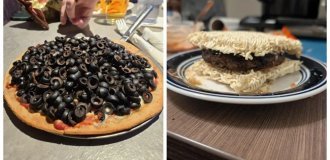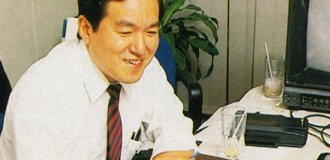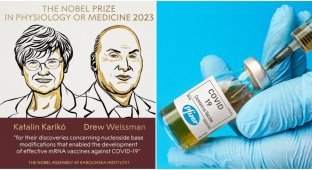“Doctor Vitamin C”, his discoveries and misconceptions (6 photos)
During the flu and cold season, in almost every prescription, the doctor, among other medications, indicates vitamin C, which should be taken to speed up recovery. Few people know where this trend came from. 
Linus Pauling (1901-1994), an American physicist, chemist and two-time Nobel Prize winner, is responsible for popularizing vitamins. The boy's father died early, and the mother had to raise three children alone. What is noteworthy is that Pauling is a dropout. But not because of his intellect, but because of his personal convictions: the guy refused to take humanities courses, believing that he was quite capable of mastering such nonsense at home. The director had a different opinion. And Linus was left without a certificate. 
True, the administration of their native educational institution felt some awkwardness when, in 1962, their undergrad received the first Nobel Prize. And the certificate was presented, as they say, as a token of gratitude.
His student years (and for obvious reasons he only managed to enroll in a provincial agricultural college) were difficult: the guy grabbed any part-time job, delivering milk, washing test tubes, chopping wood. To help your family with the cents you earn. Therefore, I accepted the offer to teach chemistry at college with delight. 
After receiving his diploma, Linus married a classmate (by the way, the marriage was the only one for life) and entered the University of California.
Subsequently, almost any of his undertakings yielded amazing results. The scientist laid the foundations of modern molecular biology. The discovery of the DNA helix was the result of an accident: while lying in bed after the flu, he was fiddling with a sheet of paper with the chemical formula of life. And I accidentally folded it correctly.
The opening championship was awarded to others (for political reasons). But Linus was not upset. After all, a couple of years later he received the Nobel Prize for his discoveries in the field of immunity science. 
When the researcher retired, he decided to devote time to studying vitamins. Moreover, there were prerequisites: Pauling fell ill with glomerulonephritis, and he had to make a lot of efforts to recover.
Among others, the researcher paid special attention to one thing - ascorbic acid and considered it almost a panacea, advising it to be taken in a dose 200 times higher than recommended by those standards. 
It is clear that the medical community was outraged. After all, the principle “there is medicine in a spoon, poison in a cup” has not yet been canceled. And the innovator did not have a medical education. But Pauling proved its effectiveness through his own and the example of his students.
And then he also wrote a book about the ability of vitamin C to treat cancer.
The researcher died at the very old age of 93, living according to his own experiences. And the trend to prescribe vitamin C has continued. More than half of the doctors do this, while the rest consider its effectiveness to be unproven, both in terms of increasing immunity and, especially, in the treatment of cancer. 
Where is the truth? She, as most often happens, is somewhere in the middle.






















